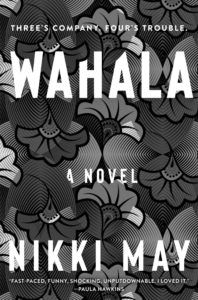So let’s talk about the book I have Definitely Not been reading since January (Remember when I posted from the Atlanta airport right before I was about to board my flight to England? Yeah. Oops.). Anyways, I did finally finish it, and honestly, it makes sense that I didn’t fly through it like I thought I would.
The Afterlives Summary
Jim Byrd died. Technically. For a few minutes. The diagnosis: heart attack at age thirty. Revived with no memory of any tunnels, lights, or angels, Jim wonders what—if anything—awaits us on the other side.
Then a ghost shows up. Maybe. Jim and his new wife, Annie, find themselves tangling with holograms, psychics, messages from the beyond, and a machine that connects the living and the dead. As Jim and Annie journey through history and fumble through faith, they confront the specter of loss that looms for anyone who dares to fall in love. Funny, fiercely original, and gracefully moving, The Afterlives will haunt you. In a good way.
“Why we dare to assume a physical form and brave a world such as ours, so full of tragedy and fear and pain, murders and rapes, war, ceaseless brutality and conflict. We wouldn’t subject ourselves to this unless it was worth it, on some level.”
My Review of The Afterlives
Doesn’t that summary sound absolutely wild? When reading, my initial thought was that it reminded me of Blake Crouch’s Dark Matter but with a more spiritual slant, but I would say that applies to the second half of the book more than the first, which is a good deal slower. The Afterlives in general is not the action-packed read I expected, though it did make me think a lot, which is why I kept going. It gets more and more bizarre as you go, and there is a lot of masterful character development over the years in which this one takes place, and that is what really gives this novel its power. The big thing that turned me off is how the POV changes, jumping from present day to the dramas of a family in the past. Personally, I just didn’t feel enough connection with the characters of the past to care all that much, although it wasn’t boring enough that I would stop. There is a lot of revisiting of moments, leading to a somewhat poetic repetition that adds to the novel’s atmosphere, even while I found myself questioning Pierce’s reasoning.
Overall, this is a read that made me question and at times boggled my mind, which all made it worthwhile in the end. I would recommend it for a quiet moment. Oh, and read with a pen — it is definitely one of those books.
Love,






